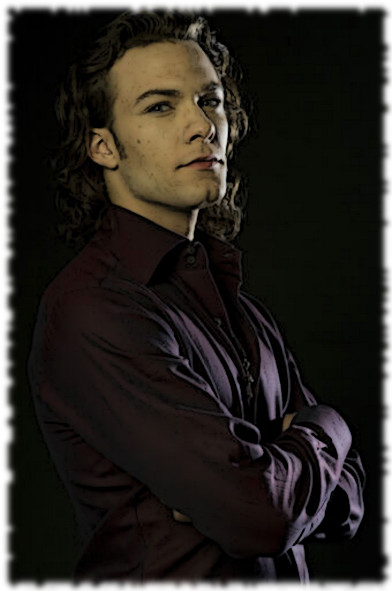Horace Holden

Appearance
Being tall and thin never goes out of style. Each night when Horace awakens, he has one of his servants style his hair in whatever manner is currently fashionable. Another one brings clothes that are currently avant garde, but never so innovative as to be offensive. He is a social chameleon, stoic and silent one night, then wildly boisterous the next. When Kindred festivities bore him, he delves into anachronistic fashions, revisiting styles that were in vogue decades or even centuries ago. Among mortals, he has mastered blending into crowds, assimilating their attitudes, and then working to stand out as vibrantly as any true Toreador should.
Background
At the dawn of the Gothic literature movement, Horace Holden possessed an uncanny knack for being at the right place at the right time, and with the right people. As the inheritor of a family fortune or dubious origins, he grew up as a consummate dilettante. Each new rage of artistic innovation, whether in music, fashion, theater or literature, attracted his interest. Although he lacked the fire to create such works, he quickly gravitated to the individuals who created them. Failing that, he found the people who knew the people who could introduce him, exploiting temporary friendships.
Where social grace failed, money prevailed. He dabbled in brief stints as a patron of the arts, but his wandering from one artistic fad to the next made him an unreliable benefactor. However, it did gain him admittance to some very remarkable parties, where he cultivated an ability to blend in with each new crowd. By the mid-19th century, he became fascinated with literature, even struggling to pen his own creations. The Gothic movement consumed him from the first time he read Castle of Otranto. Within a few scant years, he had made his introductions to the exemplars of this prurient style. Most promptly forgot his name, remembering only his unctuous enthusiasm.
What Horace lacked in talent, he made up for in insight. He could not create trends, but he could certainly spot them before they became known. Increasingly desperate for acceptance, he drifted where his instincts led him. In the year he first thrilled to Polidori's "The Vampyre," he entered a rather curious variant of this literary movement: a network of hedonists who aspired to attain the same passions evinced by Gothic poetry. If nothing else, their Dionysian revelries were diverting, leading to epic bouts of intoxication.
As he progressed through this social scene, wine gave way to absinthe, and in one shocking evening, the consumption of human blood. He had cultivated an ability to separate the artistes from poseurs in any given crowd, but it led him to a cult that took its degeneracy all too seriously. To the depths of his heart, he knew that this was a cultural movement that would transform him forever. He had seen through the mysteries of their Masquerade, finding a conspiracy of jaded and indulgent Toreador. He had read accounts of such monsters, but he was completely unprepared and amazed by the fact that they actually existed.
His first encounter with vampires galvanized him. He instantly aspired to attain all the grace and style these creatures of Gothic legend possessed. The most potent allure for him was the promise of immortality. Imagine an eternity to practice one's craft. Assuredly, it would be worth the sacrifice of never seeing the sun again to perfect one's poesy over centuries! The torments of the Damned would undoubtedly inspire him to new heights of artistic vision. And perhaps once he infiltrated Kindred society, he would be able to usher other visionaries across the threshold of eternity. Imagine if Byron and Shelley had centuries laid before them. What masterworks would they present to the night? Horace threatened to expose the blood cult's activities if they did not make him one of them.
The weak-willed Toreador he confronted was shocked. Although he had been lax in hiding his illicit activities, he thought his circle had been cautious enough to preserve the Masquerade. Fearful of a blood hunt, or worse, the necessity of brutally killing an innocent, the humane Toreador welcomed him into the society of the Damned. Horace quickly learned how much of the glamour of vampiric existence was a lie. His poetry was still execrable, and his immortality was an illusion. Until his Final Death, he would be what he had been in life: an imitator of mortal culture. Throughout the Victorian age, the salons of London welcomed him, bu the accomplished artists of his own clan still pitied him. Cursed win a way he would never have understood in his breathing days, he still seeks out visionaries who possess talent he can never have.
Personality
He does not create; he emulates. He prefers to be a flamboyant bon vivant, but he also knows such behavior is considered scandalous in some circles. Fortunately, his insight aids him admirably. As an eternal dilettante, he adapts to new styles quickly. He has come to see mortals as transient, for only true art endures. Only those with vision distinguish themselves from the herd of humanity. He is an expert at telling the difference between someone who has true artistic potential and those, who are like him, simply imitators. Sometimes these insights extend to other fields of endeavor as well, most notably politics.
Position
Keeper of Elysium
Mortals